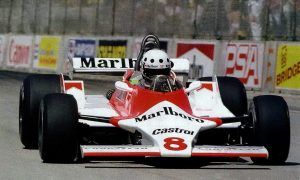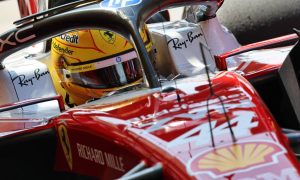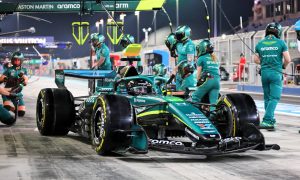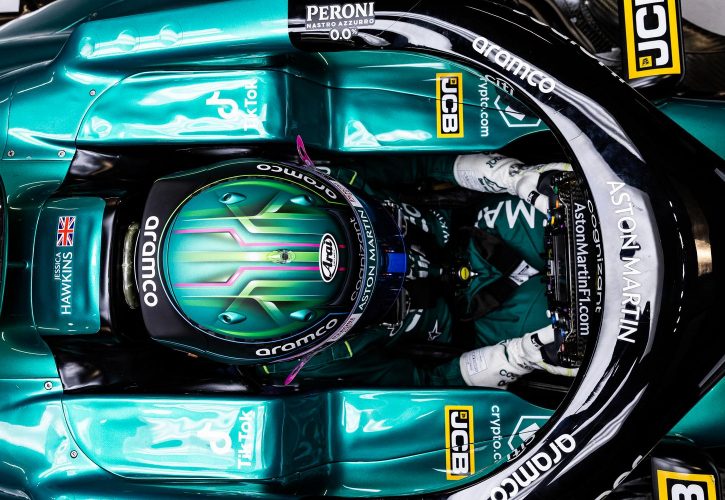
Grand Prix Drivers’ Association chairman Alex Wurz believes cooling seats in F1 would be a viable solution to help drivers combat the effects of extreme heat conditions such as those that took their toll on competitors in Qatar last weekend.
Three-time world champion Max Verstappen described his 57 laps in Lusail’s furnace and high humidity as one of the toughest races he had ever endured.
But while the Red Bull driver made it to the checkered flag relatively unscathed, others struggled to merely extricate themselves from their car at the end of the grueling event, impaired by dehydration and heat exhaustion.
Williams rookie Logan Sargeant was less fortunate, the young American being forced to retire after 40 laps after a heat stroke shut down his body and he required medical assistance.
On Monday, the FIA announced that it would investigate how it can prevent in the future a recurrence of the extreme physical strain experienced by F1’s drivers last weekend.
Wurz insisted it was time for F1 to look at "defining limits to the heat" drivers are subjected to.
"There are multiple contributing factors which need to be understood by everyone,” he told BBC F1 correspondent Andrew Benson.
"My initial thoughts revolve around lessons from other categories which have shown heat as a limiting factor for drivers.
"Cooling seats, for example, work very well and are not too difficult to produce and install. That is something every team should already be looking at.
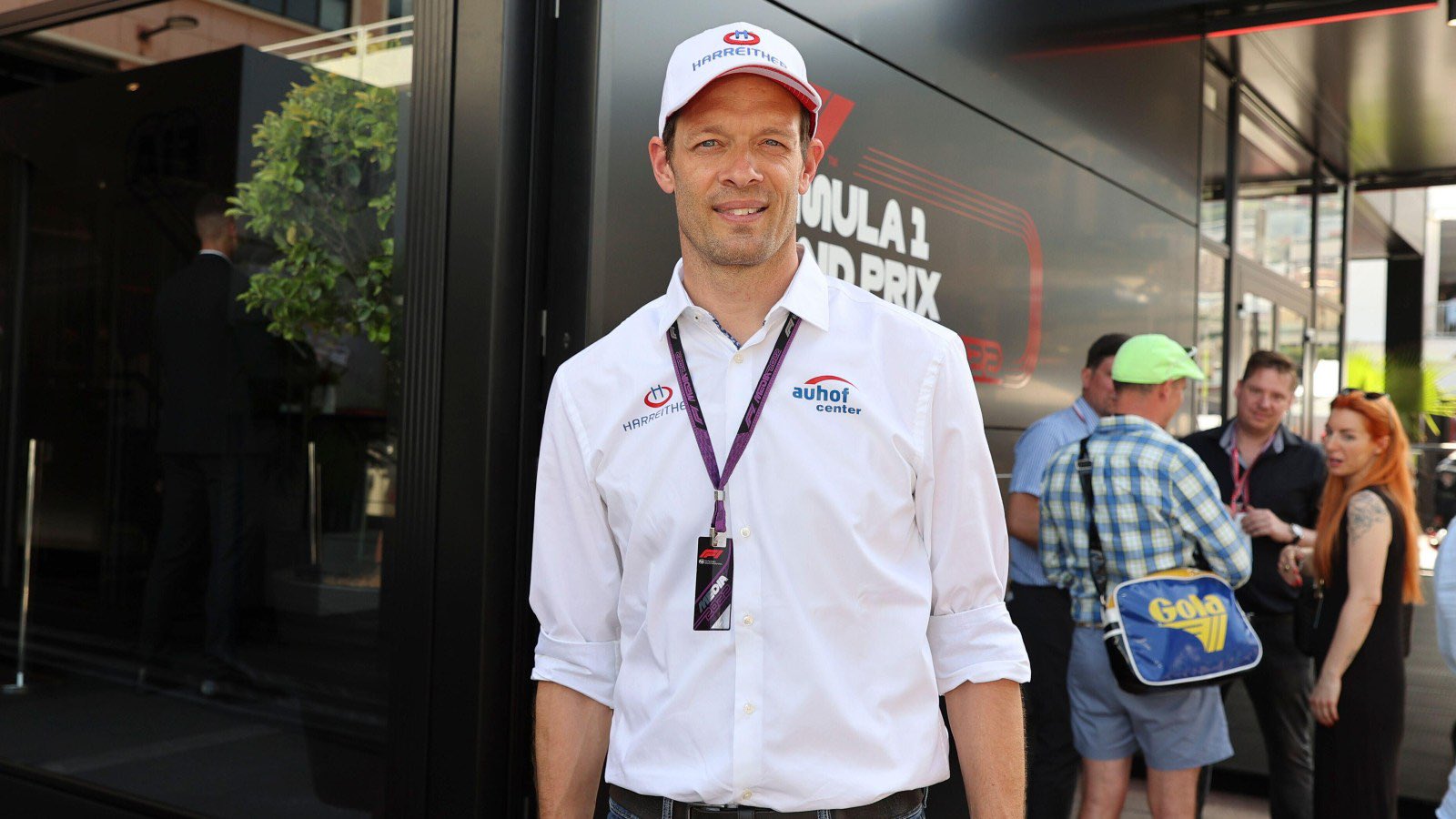
©X/Twitter
"There needs to be better insulation and/or air cooling for very hot electrical boxes, which are often sited near the drivers' seat, or in the future reroute hot hydraulic lines, so the driver's seat environment is not overheating.
"The entire rules set has tests and limits for many parts of the car. Given the driver is one of the performance parts of the equation, perhaps it is time to look at defining limits to the heat they are subjected to."
Wurz dismissed fitness levels as a factor limiting one’s physical resistance, at least as far as F1 drivers are concerned given their amount of physical preparation, especially as resistance to heat effects is not always related to fitness.
"It's too easy to say: 'Here is a gym membership - get on with it,'" he said.
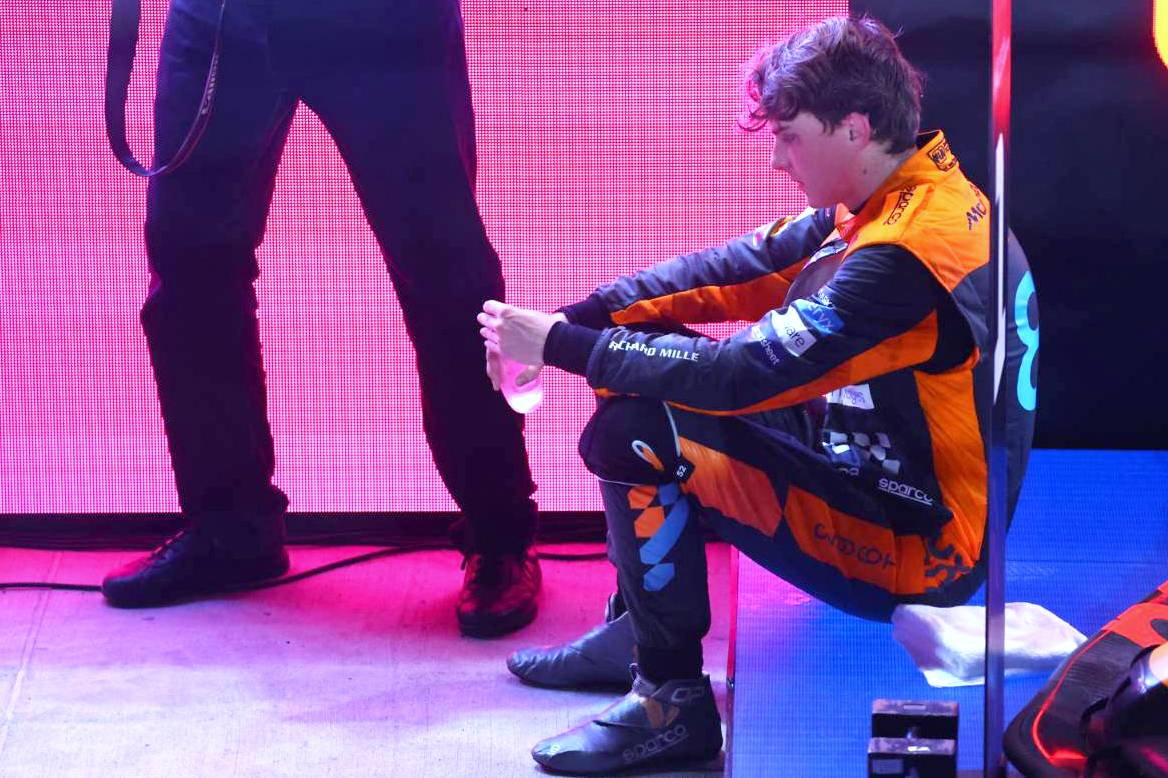
The former F1 driver pointed to new fireproof materials – some of which were developed in the wake of Romain Grosjean’s fiery crash in Bahrain in 2020 – as elements that have improved a drivers’ safety but that have also induced heat fatigue.
"They cook you," Wurz said. "I recently tested a car while wearing the new mandatory fireproofs, and I was shocked how hot I was.
"Of course, those fireproofs are here for a very good reason and I am not suggesting a return to lower fireproofing standards, but for those who are not aware what is happening, that is one of many contributing factors."
Qatar’s extreme heat and humidity weren’t the only contributing elements that challenged the drivers’ resistance last Sunday.
A race divided into multiple stints that unfolded at a furious pace due to the FIA’s decision to limit tyre life also forced drivers to tap into their reserves of energy.
"The asphalt, once clean of dust, proved to be very high-grip and the race was not about managing the thermal tyre degradation as much as usual, in itself a very interesting fact," noted Wurz.
"But for the heat debate this is a further important aspect, as this means that race lap times and driving style were pushing more every lap and generating more forces and stress."
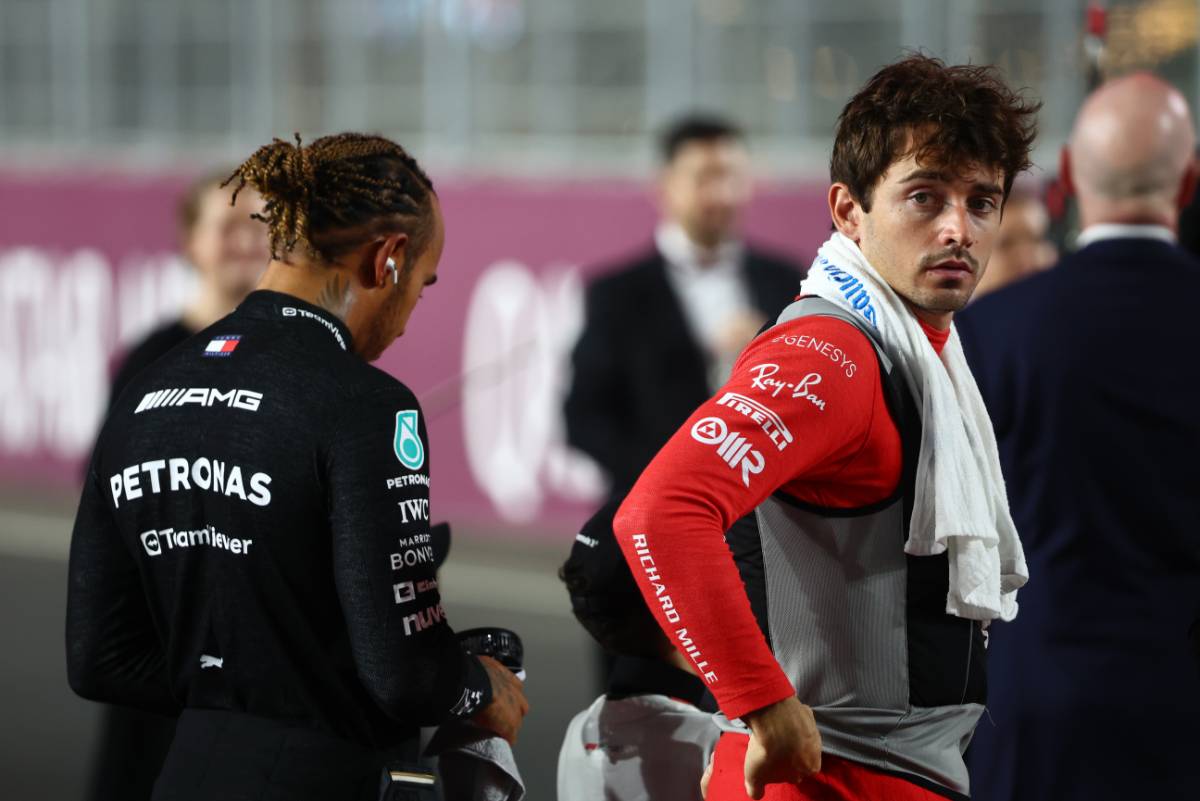
Wurz says he endured his fair share of physically tough races during his career as a Grand Prix driver, but genuinely believed that conditions at Lusail were as hard as they have ever been.
"I can guarantee you that the drivers are hard-fighting guys and after this race the scene was far from pretty,” he said.
"It made it clear to me that this topic must be followed up to establish whether the mitigation needs to be in the hands of teams only, or requires rules to be amended and/or formed.
"And seeing some of the debates around this, let's have cool heads prevailing and go about it systematically."
Keep up to date with all the F1 news via Facebook and Twitter



